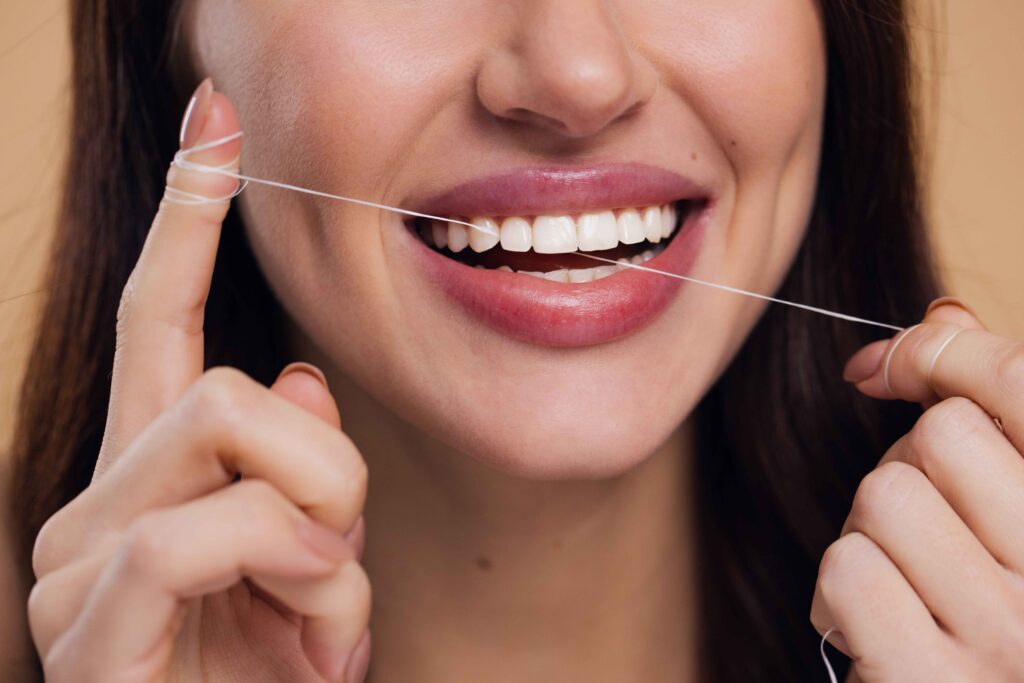Dental implants have revolutionised modern dentistry, offering a highly effective solution for individuals who have lost teeth. Not only do they restore the aesthetics of your smile, but they also play a crucial role in improving chewing function, enhancing your ability to eat and speak comfortably. Additionally, dental implants help prevent bone loss that typically occurs after tooth loss, promoting overall oral health. However, just like any investment in your well-being, proper care is essential. Maintaining your implants with the right practices ensures they stay healthy, functional, and beautiful for many years to come.
What Are Dental Implants?
Before we dive into the care tips, let’s briefly go over what dental implants are. A dental implant is a titanium post surgically inserted into the jawbone to act as a replacement for a missing tooth root. Once the bone has fused with the implant, a crown is placed on top to restore the tooth. This provides a durable and long-lasting solution compared to traditional dentures or bridges.
Why Dental Implants Need Special Care
While dental implants are highly durable, they still require care to avoid complications. Neglecting proper maintenance can lead to infections, implant failure, and the need for costly replacements. Think of your dental implants as an investment in your long-term health—taking care of them ensures that they will last a lifetime, as intended. For residents seeking a solution, dental implant Hove offers personalised care to ensure the longevity of your implants and overall oral health.
In the following sections, we will outline the most important aspects of maintaining your dental implants.

Daily Care Tips for Your Dental Implants
1. Brush and Floss Regularly
Just like natural teeth, dental implants require regular brushing and flossing to keep plaque and bacteria at bay. Use a soft-bristled toothbrush and fluoride toothpaste to clean your teeth twice a day. Brushing helps remove food particles and prevents plaque buildup that can lead to gum disease around the implant.Flossing is equally important. It helps clean areas between your teeth and around the base of your implant where a toothbrush cannot reach. However, traditional floss may not be effective around implants, so consider using a special implant floss or an interdental brush designed for cleaning around the implants.
2. Use an Antibacterial Mouthwash
An antibacterial mouthwash can help prevent infection and keep your gums healthy. Rinsing with mouthwash after brushing and flossing can reduce plaque buildup and combat bad breath. Make sure to choose a mouthwash that is alcohol-free, as alcohol can irritate the gums and dry out your mouth.
3. Avoid Hard or Sticky Foods
Though dental implants are durable, they can still be damaged by extremely hard or sticky foods. Avoid chewing on hard items like ice or candy, as they can crack the crown or cause unnecessary wear. Sticky foods, such as caramel or chewing gum, can also cause plaque to stick to your implants, making it harder to clean them effectively.
4. Quit Smoking
Smoking is a major contributor to the failure of dental implants. The chemicals in tobacco smoke reduce blood flow to your gums, which can lead to infection and delayed healing after the implant surgery. Smoking also increases the risk of gum disease, which can affect both your natural teeth and implants.If you smoke and are planning to get dental implants, it’s highly recommended to quit before and after the procedure to improve the chances of success.
5. Regularly Check for Any Signs of Complications
While dental implants are generally low-maintenance, it’s important to stay vigilant for any signs of complications. Watch out for:
- Gum recession around the implant
- Changes in the alignment of your bite
- Swelling or tenderness around the implant
- Pain or discomfort while chewing
If you notice any of these issues, it’s important to contact your dentist or an emergency dentist in Hove as soon as possible. Prompt action can prevent further complications and ensure that your implant remains in good health.
Professional Maintenance and Check-ups

1. Regular Check-ups with Your Dentist
Even though dental implants are more resistant to decay than natural teeth, they still need regular check-ups to ensure everything is functioning properly. During these visits, your dentist will examine your implants, check for gum disease, and clean around the implant. They may also take X-rays to check the condition of the bone around the implant.
2. Professional Cleaning
Professional cleanings are essential for preventing plaque and tartar buildup around the implants. While at-home care is essential, there are areas that may be hard to clean thoroughly, especially if you have multiple implants or crowns. A hygienist can use special tools to clean your implants effectively, reducing the risk of infection.
3. Bone Health Monitoring
One of the primary benefits of dental implants is that they stimulate the jawbone, preventing bone loss that typically occurs when teeth are lost. However, monitoring bone health is vital for long-term implant success. Bone loss around an implant can result from gum disease or insufficient bone support, which may lead to implant failure. Your dentist may monitor this by taking periodic X-rays and examining your gum health.
Long-term Care Tips for Longevity
1. Use a Night Guard
Teeth grinding, also known as bruxism, can damage dental implants over time. If you grind your teeth while sleeping, consider wearing a night guard to protect your implants and prevent unnecessary wear and tear on the crown.
2. Be Mindful of Your Diet
The health of your dental implants is greatly influenced by your diet. Eating a well-balanced diet rich in vitamins and minerals is essential for healthy gums and bones. Incorporate foods like leafy greens, dairy, nuts, and fish into your meals to support bone health.
Solutions for Common Problems with Dental Implants
While dental implant Hove is highly reliable, it’s essential to address any problems promptly to avoid severe complications. Some common issues and their solutions include:
- Implant Loosening: If your implant feels loose, contact your dentist immediately. They will assess the issue and may readjust or reattach the implant.
- Gum Infection Around the Implant: In the event of an infection, take prescribed antibiotics and adhere strictly to good oral hygiene practices to prevent further complications.
- Bite Misalignment: If you experience discomfort or misalignment, consult your dentist. They can make necessary adjustments to ensure your bite is properly aligned.
- Cracked or Damaged Crown: A damaged or cracked crown requires prompt attention. Visit your dentist for a timely replacement or repair to restore the function and appearance of your implant.
Conclusion
Dental implants can greatly improve your quality of life, offering a lasting solution for missing teeth and enhancing both your smile and overall oral health. However, just like any dental procedure, they require ongoing care and attention to ensure they remain in optimal condition. By practising good daily maintenance, scheduling regular dental check-ups, and promptly addressing any issues that arise, you can enjoy the benefits of your implants for many years.If you encounter any complications or feel uncertain about your oral care routine, reach out to an Emergency dentist in Hove for expert guidance and assistance.